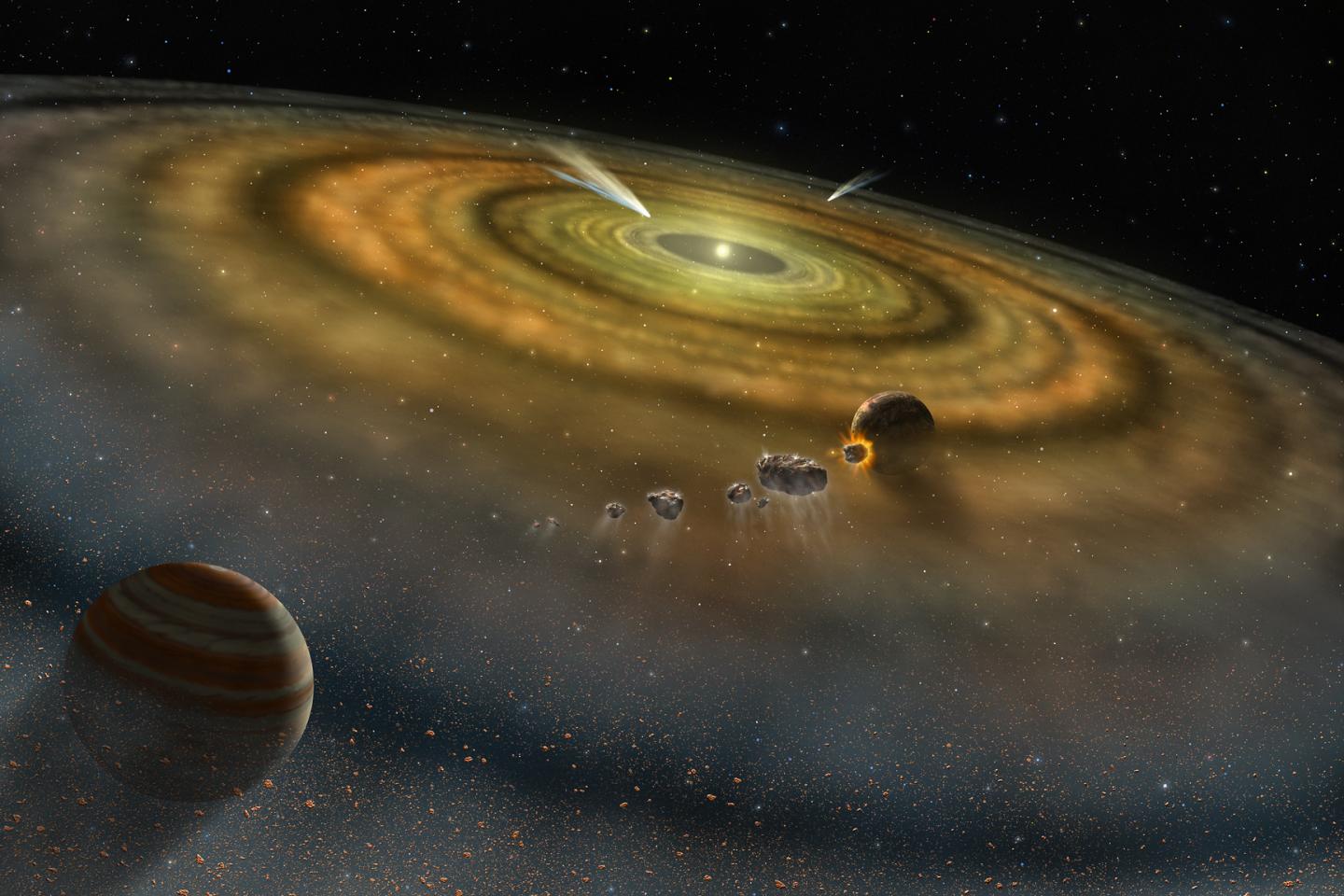
By examining a distant planetary system in ‘before and after’ images, astronomers believe they have captured the debris of a giant asteroid impact, a kind of cosmic billiards from which new planets may form in the future.
In 2004-2005, the Spitzer Space Telescope recorded a huge dust cloud in the star Beta Ocriva, 64 light-years from Earth.
The dust, whose mass is estimated to be 100,000 times the mass of the 10-kilometre-diameter asteroid that caused the extinction of the dinosaurs, had completely disappeared when the star was observed by the James Webb Space Telescope in 2023.
The researchers said at the American Astronomical Society conference that the most likely explanation is that the dust cloud was formed as a result of the collision of two large asteroids.
Such collisions are expected to occur in young systems like Beta Ocriva, which began to shine only 20 million years ago. By comparison, the solar system is 4.6 billion years old.
Two large gas planets, like our own Jupiter, have been identified around Beta Ocriva so far, while the process of forming rocky planets from dust clouds appears to be incomplete.
The researchers said the results provide insight into the turbulent era of the solar system during which Earth formed.
“Beta Ocriva is in an era where planets continue to form through giant asteroid collisions, so what we’re seeing is essentially how rocky planets form in real time,” said Christine Chen of Johns Hopkins University, the study’s leader.
“The question we are trying to answer is whether the whole process of forming rocky and gaseous planets is common or rare. A fundamental question we are asking is: How rare are planetary systems like ours?” added Canden Worthen of Johns Hopkins University, also a member of the team.
“We’re basically trying to figure out how weird or normal we are,” he said.

“Total alcohol fanatic. Coffee junkie. Amateur twitter evangelist. Wannabe zombie enthusiast.”





More Stories
Is this what the PS5 Pro will look like? (Image)
Finally, Windows 11 24H2 update significantly boosts AMD Ryzen – Windows 11 performance
Heart Surgeon Reveals The 4 Things He ‘Totally Avoids’ In His Life